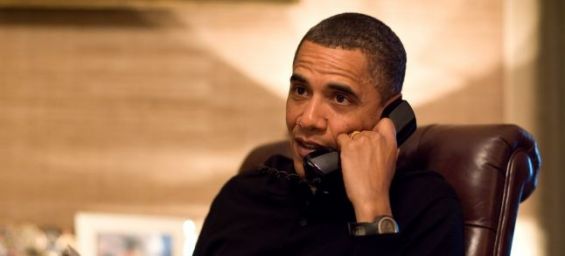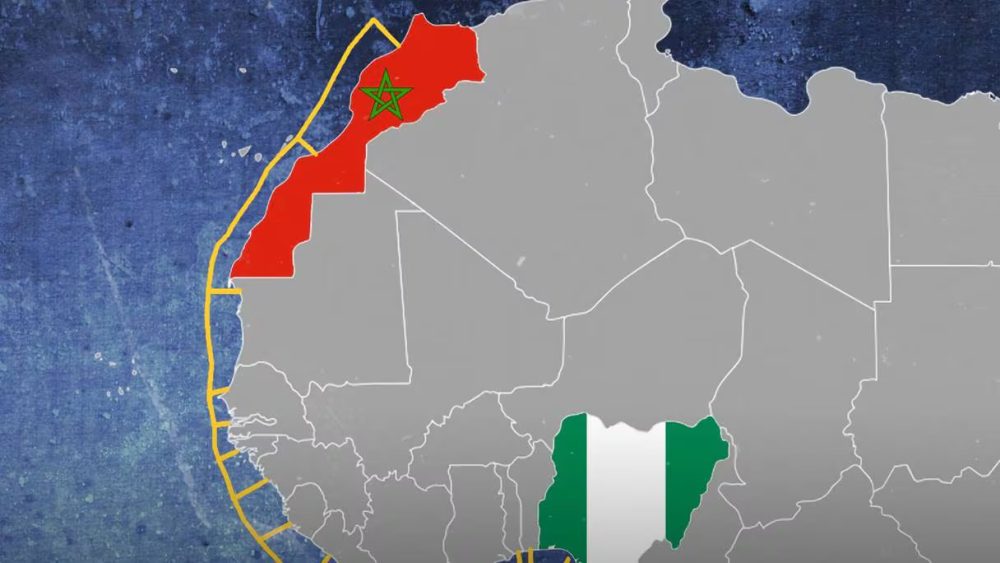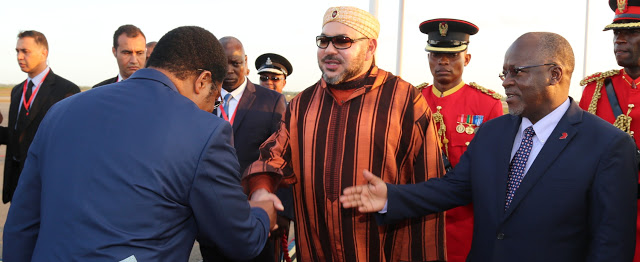 Security issues and fight against terrorism were at the center of a phone conversation earlier this week between US President Barack Obama and Morocco’s King Mohammed VI.
Security issues and fight against terrorism were at the center of a phone conversation earlier this week between US President Barack Obama and Morocco’s King Mohammed VI.
“The two leaders discussed the importance of continuing to deepen our bilateral cooperation, especially on regional security matters of mutual concern,” said a press release issued by the White House in Washington.
In their phone talk, the two leaders paid “a particular attention to the two countries’ cooperation in defense, security and the fight against terrorism,” said a communiqué released by the Royal Palace in Rabat.
President Obama has also expressed the wish to deepen consultations with the King on topical international issues, including Syria, Mali and Palestine, as Morocco, which has a deep knowledge of these regional issues, has frequently intervened to settle inter-African and inter-Arab conflicts and is a key player in the Palestinian-Israeli peace process.
The two leaders exchanged invitations to visit each other’s country to have thus the opportunity to continue their conversation in person and convened to further their political consultations through “personal, direct, regular contacts.”
According to the communiqué released in Rabat, the telephone conversation took place after an exchange of letters between the two heads of state over the Western Sahara issue.
Last month, Washington had tabled at the UN Security Council a draft resolution proposing to expand the MINURSO mandate to human rights monitoring in Western Sahara and in the Tindouf camps, stronghold of the Algeria-backed separatist Polisario Front. Rabat had vehemently protested the move and postponed sine-die a bilateral military exercise that was scheduled in Southern Morocco.
The King also sent a letter to President Obama underscoring the paramount importance of the Sahara to the whole Moroccan people and the risks that may result from any shift in the MINURSO prerogatives.
Rabat’s stand prompted the withdrawal of the draft and the renewal of the MINURSO mandate for a year without any change, putting an end to the showdown between the two countries. The MINURSO was deployed in the Western Sahara to monitor a cease-fire decreed between Morocco and the Polisario in 1991.
Beyond the Sahara issue and beyond bilateral relations, the strategic partnership between Morocco and the United States is deemed essential to the security, stability and development of the whole Maghreb region, the Sahel and even Europe.
In September 2012, the two countries launched a Strategic Dialogue, translating thus their continued desire to strengthen the already excellent and mutually beneficial relations binding them. The two countries had then signed a Memorandum of Understanding (MoU) spelling out broadly defined spheres for cooperation, including political, security, economic, and education and cultural affairs, and providing mechanisms to advance policies and programs throughout the region and elsewhere where both nations share common values, goals, and interests.
On security issues, the MoU had underlined that the United States and Morocco will continue to share successful mechanisms for bilateral coordination, which the two countries should continue to deepen in the criminal justice, non-proliferation, and counter-terrorism sectors.
The two countries also pledged to continue their close cooperation in the Global Counterterrorism Forum and to continue to cooperate to counter the threat of violent extremism in Morocco and in the region to augment security in the region and throughout the world.



